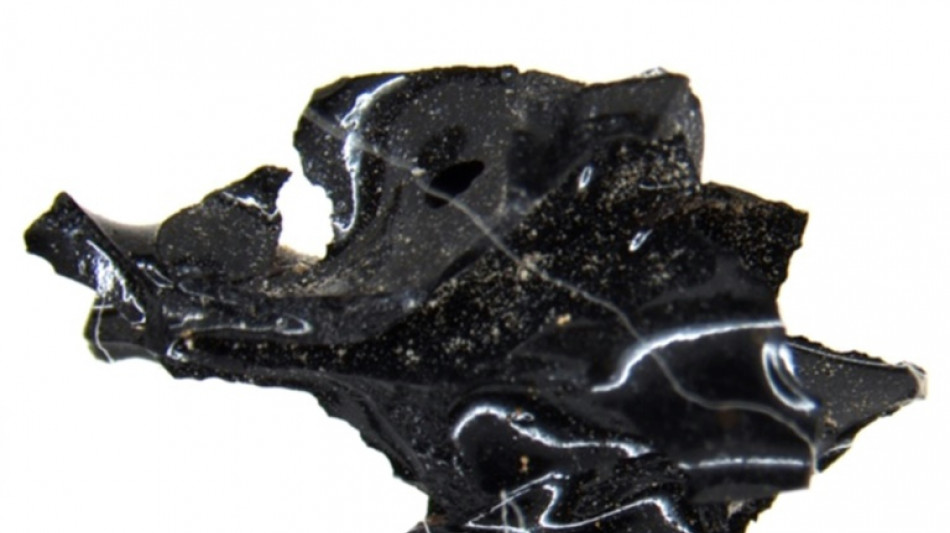
-
 Tariq confident Pakistan can bounce back after India drubbing
Tariq confident Pakistan can bounce back after India drubbing
-
Being back in the USA 'feels amazing', says Vonn

-
 New Zealand cruise into Super Eights at T20 World Cup
New Zealand cruise into Super Eights at T20 World Cup
-
Moscow, Kyiv meet for US-brokered talks after fresh attacks

-
 Exhilarating Italy aim to sign off with giant-killing at T20 World Cup
Exhilarating Italy aim to sign off with giant-killing at T20 World Cup
-
Samra hits 110 for Canada against New Zealand at T20 World Cup

-
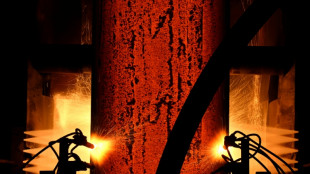 'Made in Europe' or 'Made with Europe'? Buy European push splits bloc
'Made in Europe' or 'Made with Europe'? Buy European push splits bloc
-
Slovakia revamps bunkers with Ukraine war uncomfortably close
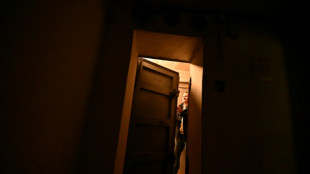
-
 Sydney man jailed for mailing reptiles in popcorn bags
Sydney man jailed for mailing reptiles in popcorn bags
-
'Like a Virgin' songwriter Billy Steinberg dies at 75

-
 Who fills Sexton vacuum? Irish fly-half debate no closer to resolution
Who fills Sexton vacuum? Irish fly-half debate no closer to resolution
-
Japan hails 'new chapter' with first Olympic pairs skating gold

-
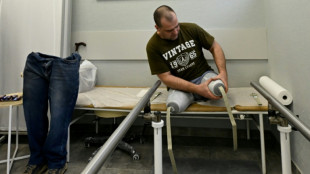 Russian prosthetics workshops fill up with wounded soldiers
Russian prosthetics workshops fill up with wounded soldiers
-
'Not just props that eat': Extras seek recognition at their own 'Oscars'

-
 Bangladesh PM-to-be Tarique Rahman and lawmakers sworn into parliament
Bangladesh PM-to-be Tarique Rahman and lawmakers sworn into parliament
-
At least 14 killed in spate of attacks in northwest Pakistan
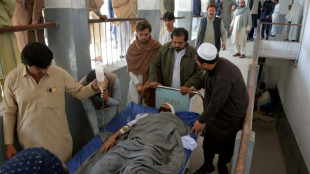
-
 Peru Congress to debate impeachment of interim president
Peru Congress to debate impeachment of interim president
-
Bleak future for West Bank pupils as budget cuts bite

-
 Oil in spotlight as Trump's Iran warning rattles sleepy markets
Oil in spotlight as Trump's Iran warning rattles sleepy markets
-
Why are more under-50s getting colorectal cancer? 'We don't know'

-
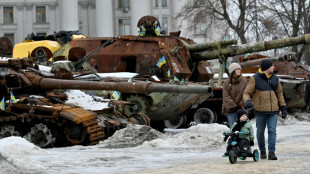 Moscow, Kyiv set for Geneva peace talks amid Russian attacks
Moscow, Kyiv set for Geneva peace talks amid Russian attacks
-
Iran, United States set for new talks in Geneva

-
 China has slashed air pollution, but the 'war' isn't over
China has slashed air pollution, but the 'war' isn't over
-
India's tougher AI social media rules spark censorship fears

-
 Doctors, tourism, tobacco: Cuba buckling under US pressure
Doctors, tourism, tobacco: Cuba buckling under US pressure
-
Indonesia capital faces 'filthy' trash crisis

-
 France grants safe haven to anti-Kremlin couple detained by ICE
France grants safe haven to anti-Kremlin couple detained by ICE
-
BioNxt Receives Milestone EPO Decision to Grant European Patent for Sublingual Cladribine Drug Delivery Technology for Multiple Sclerosis

-
 Nano One Announces Executive Leadership Appointments
Nano One Announces Executive Leadership Appointments
-
Agronomics Limited Announces Half-year Financial Report

-
 Empire Metals Limited Announces Major Drilling Campaign to Commence at Pitfield
Empire Metals Limited Announces Major Drilling Campaign to Commence at Pitfield
-
Coca-Cola Europacific Partners plc Announces Preliminary Unaudited Results Q4 & FY 2025

-
 Nikon Introduces The Ultra Compact Trailblazer II Binocular
Nikon Introduces The Ultra Compact Trailblazer II Binocular
-
The Venture Debt Conference Announces Speakers for April 16 Event in New York

-
 Frederick Wiseman, documentarian of America's institutions, dead at 96
Frederick Wiseman, documentarian of America's institutions, dead at 96
-
Gu pipped to Olympic gold again as Meillard extends Swiss ski dominance

-
 Copper powers profit surge at Australia's BHP
Copper powers profit surge at Australia's BHP
-
China's Gu defiant after missing out on Olympic gold again

-
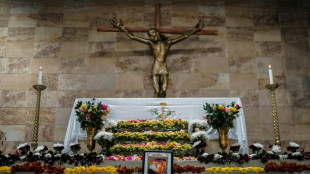 Remains of Colombian priest-turned-guerrilla identified six decades later
Remains of Colombian priest-turned-guerrilla identified six decades later
-
USA bobsleigh veteran Meyers Taylor wins elusive gold

-
 Miura and Kihara snatch Olympic pairs gold for Japan
Miura and Kihara snatch Olympic pairs gold for Japan
-
Gu pipped to gold again as Meillard extends Swiss ski dominance at Olympics

-
 Barca suffer title defence blow in Girona derby defeat
Barca suffer title defence blow in Girona derby defeat
-
Brentford edge out sixth-tier Macclesfield in FA Cup

-
 Canada's Oldham wins Olympic freeski big air final, denying Gu gold
Canada's Oldham wins Olympic freeski big air final, denying Gu gold
-
France loosens rules on allowing farmers to shoot wolves

-
 USA thrash Sweden to reach Olympic women's ice hockey final
USA thrash Sweden to reach Olympic women's ice hockey final
-
Russian poisonings aim to kill -- and send a message

-
 France's Macron eyes fighter jet deal in India
France's Macron eyes fighter jet deal in India
-
Arsenal to face third-tier Mansfield, Newcastle host Man City in FA Cup


How did this man's brain turn to glass? Scientists have a theory
A young man was lying in his bed when a viciously hot cloud of ash swept down from the erupting Mount Vesuvius and turned his brain to glass almost 2,000 years ago.
That is the theory Italian scientists proposed on Thursday to explain the strange case of the ancient Roman's brain, which they said is the only human tissue ever known to have naturally turned to glass.
This unique brain could rewrite the story of one of history's most famous natural disasters -- and help protect people against this little-understood phenomenon during future volcanic eruptions, the scientists suggested.
When Mount Vesuvius -- near the modern-day Italian city of Naples -- erupted in 79 AD, the cities of Pompeii and Herculaneum were buried in a fast-moving blanket of rock and ash called a pyroclastic flow.
Thousands of bodies have been discovered at the sites effectively frozen in time, offering a glimpse into the daily life of ancient Rome.
In the 1960s, the charred remains of a man aged roughly 20 were found on a wooden bed in a Herculaneum building dedicated to worshipping the Roman Emperor Augustus.
Italian anthropologist Pier Paolo Petrone, a co-author of a new study, noticed something strange in 2018.
"I saw that something was shimmery in the shattered skull," he told AFP in 2020.
What was left of the man's brain had been transformed into fragments of shiny black glass.
- 'Amazing, truly unexpected' -
These "chips" are up to a centimetre wide, volcanologist Guido Giordano, the lead author of the new study in Scientific Reports, told AFP.
When the scientists studied the glass using an electron microscope, they discovered an "amazing, truly unexpected thing," he said.
Complex networks of neurons, axons and other identifiable parts of the man's brain and spinal cord were preserved in the glass, according to the study.
How this happened is something of a mystery.
Glass occurs rarely in nature because it requires extremely hot temperatures to cool very rapidly, leaving no time for crystallisation. It is usually caused by meteorites, lightning or lava.
This is even more unlikely to happen to human tissues, because they are mostly made out of water.
The Roman's brain being preserved in glass is the "only such occurrence on Earth" ever documented for human or animal tissue, the study said.
The scientists determined that the brain must have been exposed to temperatures soaring above 510 degrees Celsius (950 Fahrenheit).
That is hotter than the pyroclastic flow that buried the city, which topped out at around 465C.
Then the brain needed to rapidly cool down -- and all this had to happen before the flow arrived.
The "only possible scenario" was that an ash cloud emitted by Vesuvius delivered an initial hot blast before quickly dissipating, the study said.
This theory is supported by a thin layer of ash that settled in the city shortly before it was smothered.
This would mean the people of Herculaneum were actually killed by the ash cloud -- not the pyroclastic flow as had long been thought.
- 'Poorly-studied' threat -
Giordano hoped the research would lead to more awareness about the threat posed by these hot ash clouds, which remain "very poorly studied" because they leave little trace behind.
French volcanologists Katia and Maurice Krafft, the subjects of the Oscar-nominated 2022 documentary "Fire of Love", were killed by such an ash cloud, Giordano said.
And some of the 215 people killed during the 2018 eruption of Guatemala's Fuego volcano were also victims of this phenomenon, he added.
"There is a window of survivability" for these hot blasts, he emphasised, adding that fitting houses near volcanoes to withstand high heat could help.
But why did the man with the glass brain uniquely suffer this fate?
Unlike Pompeii, Herculaneum had some time to respond to the eruption. All the other bodies discovered there were clearly trying to flee into the Mediterranean Sea.
However the man, who is thought to have been the guardian of the Collegium building, stayed in bed in the middle of town, so was the first hit.
"Maybe he was drunk," Giordano joked, adding that we will likely never know the truth.
L.Mason--AMWN
